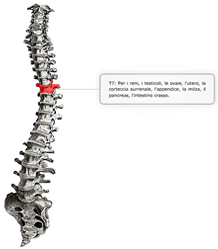Vitamin G
Vitamin G
This newsletter on vitamin G is the last in a series that began with vitamin A. This coincides with another ending: I'll be changing my office location on December 1st, and moving around the block to 850 7th Avenue, Suite 406. Come check out the new space!
Vitamin B complex
B vitamins, like all vitamins, are all essential for life, and the body cannot synthesize them on its own. We must therefore acquire vitamins from the foods we eat. In addition, all B vitamins are water soluble, meaning that the body cannot store them like fat soluble vitamins. Any excess amounts of water-soluble vitamins simply pass through the body. Apart from this commonality, however, the vitamin B-complex can be divided into two distinct groups, each with its own chemistry, and very different effects on the body.
Vitamin G
The two groups within the vitamin B complex are often referred to as "B" and "G". This nomenclature dates back to the early 20th century when vitamins were being named in the order that they were discovered: first vitamin A, then vitamin B, then vitamin C, and so on. By the time Canadians discovered vitamin G, American investigators were categorizing the same substance as part of a vitamin B group. Instead of calling it vitamin G, they called it riboflavin (B-2). Eventually, there was consensus on the categorization of the B-complex vitamins, but the term "G" or vitamin G still has significance today.
"B" vs. "G"
Some nutritional companies make supplements that contain the two different groups within the B-complex. The primary factor in the "B" group is thiamine (B1), and the secondary factors are pantothenic acid (B5) and cyanocobalamine (B12). The primary factors of the "G" group are riboflavin (B2) and niacin (B3), and the secondary factor is folic acid (B9).
Are you a B or G person?
In general, "G" acts as a relaxer, and "B" acts as a tonifier.
For people with hypertension, "G" works as a vasodilator, lowering blood pressure and heart rate, while "B" does the exact opposite.
The two groups also have opposite effects on nerve transmission, with "G" increasing parasympathetic nervous system activity (calming), and "B" enhancing the sympathetic, or "fight or flight" response (stimulating).
Symptomatically, a person needing more "G" may be suspicious and moody, and tend toward excessive worry. They may have restless jumpy legs, especially when falling asleep. Conversely, a "B" person may have psychotic tendencies, and tend to be intolerant to noise. A "B" person may suffer from headaches that feel like a tight band around the head, burning on the soles of the feet, or tenderness in their calves.
Conclusion
Taking an entire B-complex is a hit or miss approach. Most people are better off isolating the fraction of the B-complex that is indicated for their condition. As always, it is best to work with a physician who uses manual muscle testing before deciding on which supplement is best for you.

 SCHEDULE AN APPOINTMENT
SCHEDULE AN APPOINTMENT









